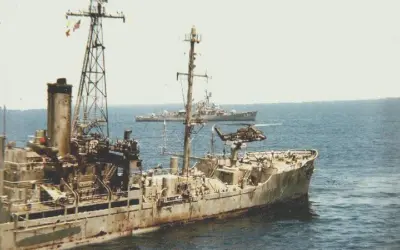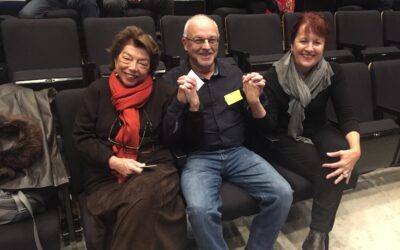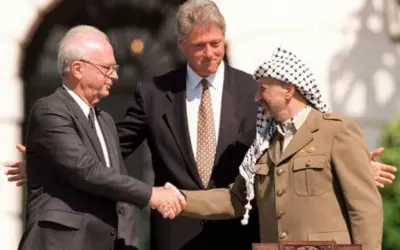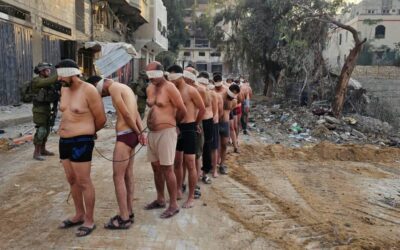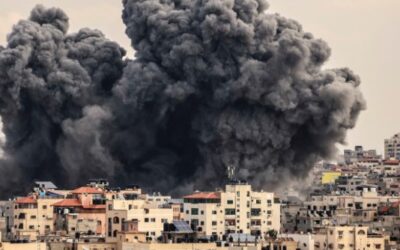The assassination of Nazir Banat by the Palestinian Authority sparked massive mobilizations to demand the resignation of Mahmoud Abbas. A few weeks after a major popular movement against Israeli colonization, the PA faces a new generation of Palestinians determined to fight against an authority subject to the colonial state of Israel.
Tuesday, July 6th .
 Since the beginning of the resistance in the Sheikh Jarrah neighborhood of East Jerusalem against the eviction of Arab families from the neighborhood, the Palestinian movement has faced fierce repression from the State of Israel and replacement of Netanyahu by the far right Naftali Benett.
Since the beginning of the resistance in the Sheikh Jarrah neighborhood of East Jerusalem against the eviction of Arab families from the neighborhood, the Palestinian movement has faced fierce repression from the State of Israel and replacement of Netanyahu by the far right Naftali Benett.
This movement, from the resistance of the neighborhoods of Jerusalem to the attempt to unify the movement in the West Bank, in Israel and in the refugee camps of the surrounding countries through experiences such as the general strike last month, is facing another adversary who had been careful to remain silent during the criminal bombings of the Gaza Strip. The Palestinian Authority, led historically by the Fatah of Mahmoud Abbas, has for several days faced mobilizations in West Bank towns where resistance against Israel has been the most vocal.
Mass mobilizations took place in Ramallah, Hebron and many other West Bank towns under the Palestinian Authority following news of the death of Nazir Banat, a political activist assassinated by the Palestinian security forces. Nazir Banat was an activist and journalist opposed to the Palestinian Authority and Mahmoud Abbas, who had repeatedly been threatened with death by the Fatah leadership, especially when he ran for election (then canceled by Abbas) last May.
He was assassinated following a major mobilization in Ramallah against the Palestinian Authority. Arrested by security forces, his family learned the next day that he had been beaten to death, which forcefully reactivated protests in the streets of the West Bank.
Yesterday, mobilizations took place in the largest cities of the West Bank, underlining the significant discredit of the Palestinian Authority, subjected in recent years to an ever greater compromise to the interests of the colonial State of Israel and to the rise of authoritarian methods of security maintenance. As Amira Hass underlines it, this policy is above all linked to the will of Fatah at the head of the Palestinian Authority to stand as the guarantor of the maintenance of order and the avoidance of conflicts between the Palestinians and the colonial order, in order to ensure the establishment of new economic agreements and the progressive recognition of Palestine on the international level. Not only is this policy a bitter failure, and this since the Oslo accords which signed the start of this strategic turning point, but it above all justifies the Fatah leadership’s position as a better guarantor of Israel’s colonialism than of the defense of the Palestinian people in their confrontation with the new far-right government of Naftali Benettt.
Amira Hass also states, in her interview for Haaretz entitled How Israel, Fatah and the PA join forces to silence Palestinian protest: “The Palestinian Authority is going from failure to failure and has not even been able to obtain the famous law which was to allow the family reunification of Palestinians separated by Israeli borders. […] Its active role today is to maintain the status quo and prevent direct clashes with Israeli forces. […] Fatah today is asking for permission and waiting for Israel’s consent. Why ask for the consent of the occupier? ” As she explains in her interview, there is a deep democratic aspiration among the Palestinian people who now see the Palestinian Authority as a corrupt body ready to do anything to suspend democratic bodies that would endanger it. Last May nearly 93% of Palestinian voters registered on the electoral lists, a historic figure. In the protests organized today, Amira Hass insists “there are mostly left-wing activists, but also Hamas activists, and even Fatah activists, in these harshly suppressed protests.”
The mobilizations have resumed since Saturday following a deep repression which was widely denounced by the international press (not without a measure of double standards since this same press – like Le Monde – generally hastens to defend the bombings organized by Israel against the Gaza Strip).
Middle East Eye reports that one of its journalists, Shattah Hammad (https://twitter.com/KhaledAbuToameh/status/1410212973587611648,) was among the female journalists specifically targeted by the crackdown by the PA, which used methods of plainclothes security agents to organize the crackdown from within the event. In turn, the PA lawyer and political activist Farid al-Atrash was arrested and interned the next day in a hospital under surveillance, probably due to the consequences of his violent arrest.
As the new far-right government of Naftali Benett has relaunched the deadly colonialist offensive on the Palestinian people in the Gaza Strip as well as in the Occupied Palestinian Territories and the West Bank, the Palestinian Authority is also facing a new generation of Palestinians ready to do battle, youth who, from Sheikh Jarrah to the organization of the general strike last May, show a fighting spirit resolved to get rid of Mahmoud Abbas and the leadership of Fatah.
Although Hamas has taken advantage of the weaknesses of the Palestinian Authority because of its conciliatory policy toward Israel, the various leaderships of the movement have had to face a new desire for unity of the Palestinian people which has not been seen since the last intifada and which could push the Palestinians to surpass it. In the resistance against the State of Israel that has taken place in recent months among a new generation of Palestinians, the questioning of the leadership of the Palestinian Authority, complicit in the repression and accords with the Israeli colonial state for a number of years now, has brought about a new political phenomenon among the youth and is an essential stage of development in its new strength and in the struggle for self-determination.
DISTRIBUTED BY PAJU (PALESTINIAN AND JEWISH UNITY)
PAJUMONTREAL.ORG/EN
